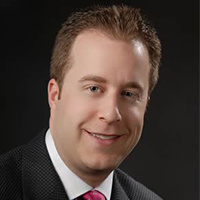Wyandotte Collection Lawyer, Michigan
Sponsored Law Firm
-
 x
x

Click For More Info:
-
Marrs & Terry, PLLC
6553 Jackson Road Ann Arbor, MI 48103» view mapBankruptcy & Debt Personalized, Efficient Counsel
Marrs & Terry, PLLC have been helping individuals face a variety of legal challenges, including bankruptcy, estate planning and administration, and family law.
800-862-7221
Aaron J. Scheinfield
✓ VERIFIEDBankruptcy & Debt, Landlord-Tenant, Collection, Litigation, Construction
Aaron J. Scheinfield, born Farmington Hills, Michigan, December 1977, was admitted to the Bar in 2004. Education: University of Michigan (B.A. 2000); ... (more)
FREE CONSULTATION
CONTACTScott P. Mussin
Civil Rights, Contract, Collection, Wrongful Death
Status: In Good Standing Licensed: 20 Years
Aaron Daniel Cox
Commercial Real Estate, Landlord-Tenant, Family Law, Collection
Status: In Good Standing Licensed: 18 Years
Lora Ann Mcparland-savoie
Family Law, Divorce, Criminal, Collection
Status: In Good Standing Licensed: 9 Years
William L. Orlewicz
Federal Appellate Practice, Criminal, Business, Collection
Status: In Good Standing Licensed: 13 Years
Stephen J. Smith
Workers' Compensation, Contract, Collection, Wrongful Death
Status: In Good Standing Licensed: 51 Years
Christopher Raymond Shemke
Elder Law, Insurance, Collection, Personal Injury
Status: In Good Standing Licensed: 14 Years
Mohamad Issa Bazzi
Workers' Compensation, Consumer Protection, Contract, Collection, Wrongful Death
Status: In Good Standing


 Tricia Terry Ann Arbor, MI
Tricia Terry Ann Arbor, MI AboutExperienced Michigan Lawyer
AboutExperienced Michigan Lawyer Articles
Articles

